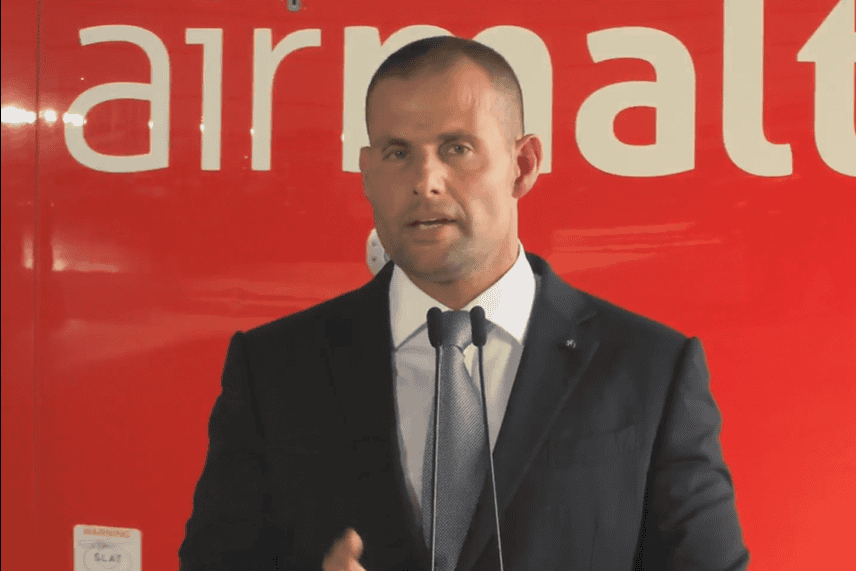
I disliked the news that the new company that took over Air Malta’s business removed the requirement that cabin crew must speak Maltese, although my reasons may be a bit different from the ones you’ve heard. I also thought the airline’s response that they didn’t need to speak Maltese because 80% of their passengers would not be Maltese speakers was a bit silly. There’s no other airline with 20% of its passengers speaking Maltese so in terms of basic customer service needs for the Maltese airline to have Maltese-speaking cabin crew should make perfect sense. If they were operating in Gujarat they would need to speak Gujarati just so they know what to get if a passenger asks for water.
I also think that using Maltese on the airline which is branded as part of the experience of visiting Malta as a tourist would be part of that tourism product. Some tourists might appreciate the touch.
But I’m not a reviewer of airlines and tourism products nor am I a campaigner for the use of local language. My job here is to monitor politicians. I think the behaviour of both political leaders in this incident shows they’ve learnt nothing from Air Malta’s demise and just 2 days in the life of its successor company they’re back to thinking they can impose their political considerations on a commercial business, purely because the government owns it.
It doesn’t matter that the government owns it. To remain in business the airline must be commercially viable. Any political imposition which has a commercial price will be a nail in the airline’s premature coffin.
I’d like to see menus in restaurants in Maltese. I’d like to see films at the cinema in Maltese. I’d want all services provided in Malta available in Maltese. But if the government wants to impose that as a requirement they must be prepared to pay for the cost. Which is why the government know not to impose it on ordinary commercial service providers.
Air Malta and its successor are branded “the national airline”, but that’s just branding. They’re as much a national thing as the rabbit restaurant in Mġarr is a national restaurant. They are “Maltese” but not a function of the Maltese state or anything approximating it. They are a business whose only purpose at law is to return a profit at the end of the year.
If the decision the airline took to remove the requirement of Maltese language skills for their staff was intended to save the business money, the government can only force them to require Maltese language skills if the government are willing to pay them the money they are no longer saving. Except they can’t. The law does not allow them to aid businesses like that, not by pouring money into its balance sheet.
What governments can do and should do if they want businesses to be in a position to hire skilled people (not just the ability to speak Maltese) is to provide the educational infrastructure to make sure our human resources are adequately educated. Which incidentally opens the admittedly digressive discussion about skills in speaking French, German, Italian, Spanish, Chinese, Japanese, and whatever other languages our tourism customers might appreciate. Not to mention English. It seems that we’ve given up on teaching people to prepare them for careers and we just import labour instead.
The leader of opposition (who made the matter of being able to ask your way to the toilet on the back of the plane in the language of Rużar Briffa into a political issue) and the prime minister who spoke like some latter-day Mikiel Anton Vassalli about his expectation of being able to get his business class tray of grub served with a bonġu instead of a good morning, would not conceive of calling for McDonald’s to require the Maltese language for their staff. If our political leaders were going to be useful, they would be doing the hard work, encouraging McDonald’s to display their menus in Maltese, as they would be Italian in Italy and in German in Germany. The government would provide classes for McDonald’s non-Maltese speaking staff to get training in using the local language and find a suitable brand for Royale with Cheese.
But no government would think of issuing instructions to McDonald’s like the prime minister did to Air Malta’s successor company today.
Some might say u ijja, McDonald’s and the “national” airline are not the same. I’m guessing more than 20% of McDonald’s customers speak Maltese. I’m guessing more customers of McDonald’s speak only Maltese than passengers of Air Malta’s successor airline. And in any case the law requiring commercial viability and the inability of the government to subsidise a business is the same for McDonald’s as it is for Air Malta’s successor airline.
The only difference is that politicians still think they have the power and authority to speak to the people running the airline as if they, the politicians, personally own it. If politicians loved the language as much as they profess to do they should use their powers to promote its use and its learning among people for whom this country is home. The easiest thing in the world is to hand down orders to the airline.
And remember their real motivation here, and that is not only to impose on the airline what linguistic capabilities its staff should have but in which constituency and which party their recruits are likely to come from. That’s what this is about.
That’s what sank the old airline over which so many waxed melodramatic just last week. For generations, governments kept Air Malta barely afloat but there it stood until that false wunderkind Konrad Mizzi flew it into the side of a mountain. After all the money we spent to bury those mistakes here we are on barely the second day of life of the new airline back to our old habits.